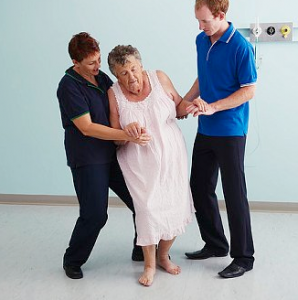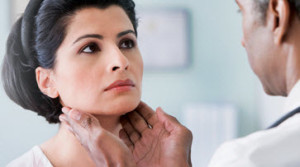 |
National Falls Prevention Awareness Day is observed each September to encourage safety and security in the home, notes pharmacist Marla Ahlgrimm. As a women’s health leader, Marla Ahlgrimm has analyzed the subject and learned a great deal about alleviating potential risks. Here, Marla Ahlgrimm shares her knowledge about preventing falls with the ZRYLW readership.
ZRYLW: Hello and welcome! Marla Ahlgrimm: Good morning – how have you been? ZRYLW: Just fine, thank you. It’s wonderful to speak with you about National Falls Prevention Awareness Day. |
Marla Ahlgrimm: It’s an important cause.
ZRYLW: How many people suffer falls each year?
Marla Ahlgrimm: According to the Centers of Disease Control and Prevention, up to 30 percent of people who fall suffer injuries such as head traumas, hip fractures and lacerations.
ZRYLW: That’s troubling.
Marla Ahlgrimm: It’s an issue, too, that we need to examine even for those who are not in the senior demographic.
ZRYLW: In general, what’s the first step in avoiding a fall?
Marla Ahlgrimm: Consulting with a physician is always an intelligent choice. By reviewing medications and nutritional supplements, a physician can help with fall prevention.
ZRYLW: Is there certain information that the physician may require during this appointment?
Marla Ahlgrimm: It can be a great benefit to keep track of instances of falls or near-falls.
ZRYLW: Could your health conditions cause a fall?
Marla Ahlgrimm: Oh, certainly. In fact, some ear and eye disorders increase a person’s risk as a result of compromised balance.
ZRYLW: What specific symptoms should be of concern to the individual?
Marla Ahlgrimm: Some people feel shortness of breath, numbness, joint pain or dizziness when they walk.
ZRYLW: As one method of fall prevention, would it be wise to select a particular brand or type of shoes?
Marla Ahlgrimm: Shoes with slick soles, floppy slippers and high heels can make a person fall, slip or stumble.
ZRYLW: What’s the best choice: Nike, Adidas….?
Marla Ahlgrimm: The brand name does not matter in the long run, but make sure to select a pair of shoes that are comfortable.
ZRYLW: What about socks?
Marla Ahlgrimm: Wear sturdy, properly fitting shoes instead of walking around in socks or slippers.
ZRYLW: What other suggestions might the doctor provide?
Marla Ahlgrimm: With a doctor’s permission, try activities like swimming, tai chi, water aerobics, or walking. Building an exercise routine can improve flexibility, coordination, balance and strength.
ZRYLW: How else can a person improve their health?
Marla Ahlgrimm: Some men and women opt for a physical therapist who can develop an exercise program designed to improve their muscle strength and cardiovascular fitness.
ZRYLW: Thanks so much for your insight on this subject!
Marla Ahlgrimm: You’re quite welcome!
Currently residing in Madison, Wisconsin, Marla Ahlgrimm has traveled the country as a guest speaker on women’s health issues. Marla Ahlgrimm is the author of two popular books on hormone replacement therapy (HRT).
